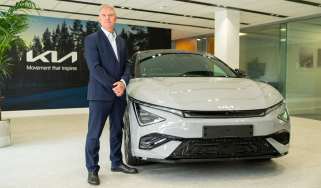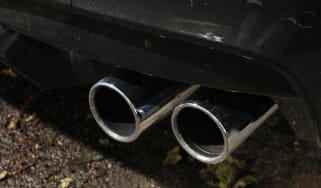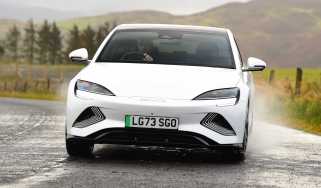UK under pressure to impose tariffs on Chinese EVs regardless of price hikes
Professor of of Business and Sustainability at Cardiff University says “erecting trade barriers” will come at the expense of car buyers

Pressure is mounting on the UK government to impose additional import tariffs on Chinese electric cars as Canada becomes yet another nation to erect trade barriers in response to what has been dubbed an ‘unfair subsidisation’ by Beijing.
From the beginning of October, Chinese vehicles imported from China will be slapped with an additional 100 per cent import tariff, effectively doubling their price for the consumer. This mirrors the action taken by U.S President, Joe Biden, earlier this year, who described the supply chain as “dominated by unfair trade practices from China”.
Despite Canadian Prime Minister, Justin Trudeau, telling the press that its choice to impose tariffs is part of “transforming Canada's automotive sector to be a global leader in building the vehicles of tomorrow”, global automotive industry expert and Professor of Business and Sustainability at Cardiff University, Peter Wells, told Auto Express that “Canada [in fact] had little choice but to mirror the US position on the import of Chinese-built EVs, as the Canadian automotive industry and market are closely integrated with the US industry and market.”
The United States is not the only superpower to implement tariffs on Chinese electric cars; earlier this year the EU announced that it would impose an additional duty of up to 36.3 per cent on EV imports from China, with the penalty depending on how much state subsidy each manufacturer has received.
Some brands that manufacture their cars in China, such as Tesla, have managed to escape with lower tariffs (nine per cent in the case of Elon Musk’s firm) as they received less help from Beijing, but these additional taxes have nevertheless pushed up prices for European buyers.
Up until now, the UK has refused to mirror the EU’s position; Trade Secretary, Jonathan Reynolds, said in July that he was not planning to launch an investigation into unfair subsidies from China. Speaking at a G7 meeting, he said: “I am not ruling anything out but, if you have a very much export-oriented industry, the decision you take [has to be] the right one for that sector”.
However, Professor Wells explained that, “The UK is, in global terms, a small market with a residual industry. As with Canada, it is likely that the UK will need to follow the EU position, although in this case the varied application of different tariff rates by the EU might be difficult to sustain in the World Trade Organisation.”
Auto Express asked the European Commision whether talks were taking place with the UK regarding its position on tariffs and if there would be any consequence if it did not mirror the EU’s position, but the Commission refused to comment.
While some reports state that the UK could soon be flooded with Chinese EVs if EU tariffs were put in place, Professor Wells explains that “The UK market is too small to be a haven, but certainly it would be attractive to build an initial presence.”
He continued, stressing that: “The industry has been successful in making this a debate about the future of manufacturing in the EU, UK, North America, etc. rather than about the benefits to consumers and to action against climate change that an acceleration in sales of cheap, small EVs would bring.”
“Subsidies are found in almost all markets now, largely acting to distort consumer choice. It must be recalled that many potential consumers are currently excluded from the market by the high price of high-specification luxury cars and sports EVs, and continuing to erect trade barriers will not help.”
Do you think incoming Chinese cars pose a threat to European car manufacturers? Let us know in the comments...
Find a car with the experts








